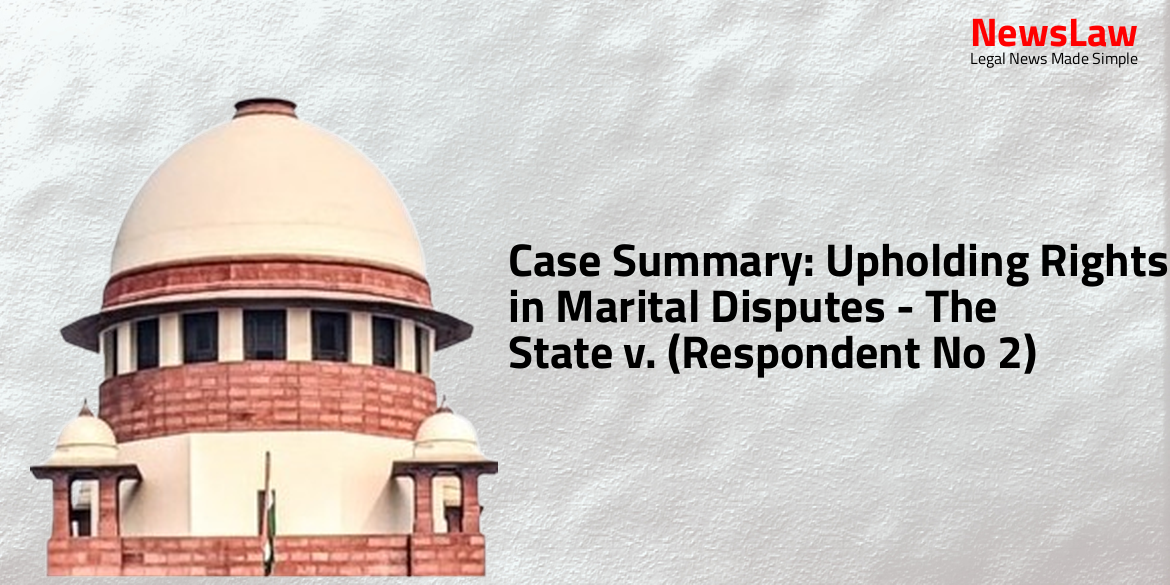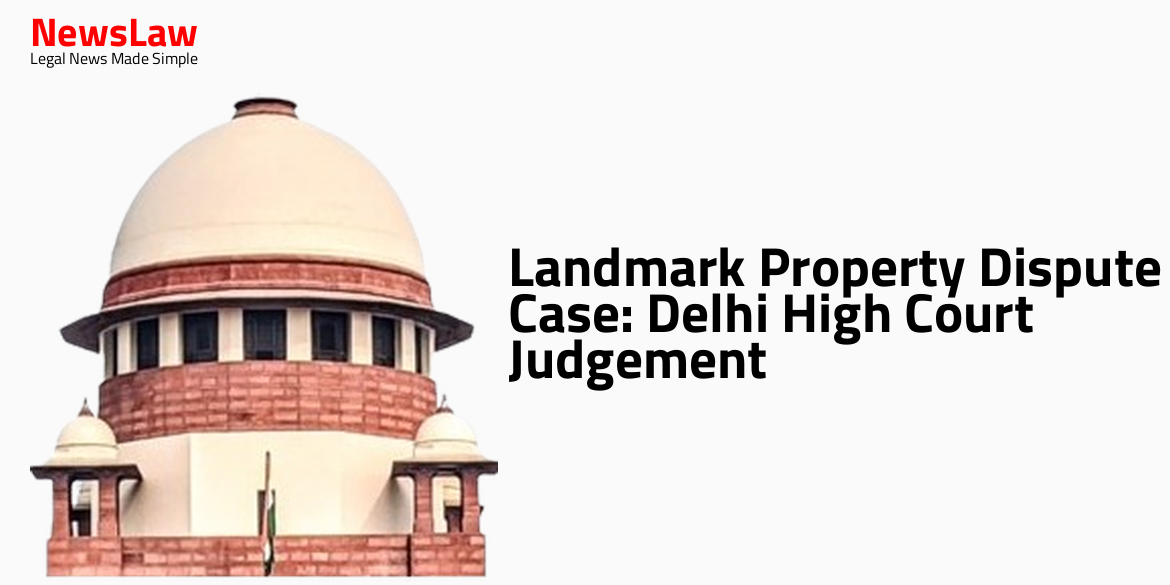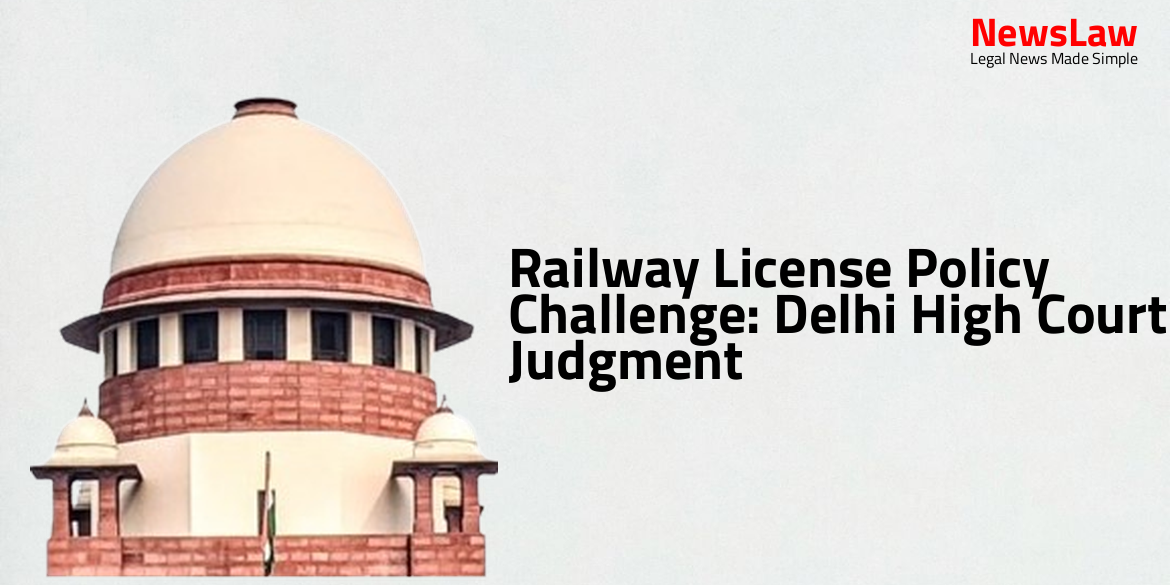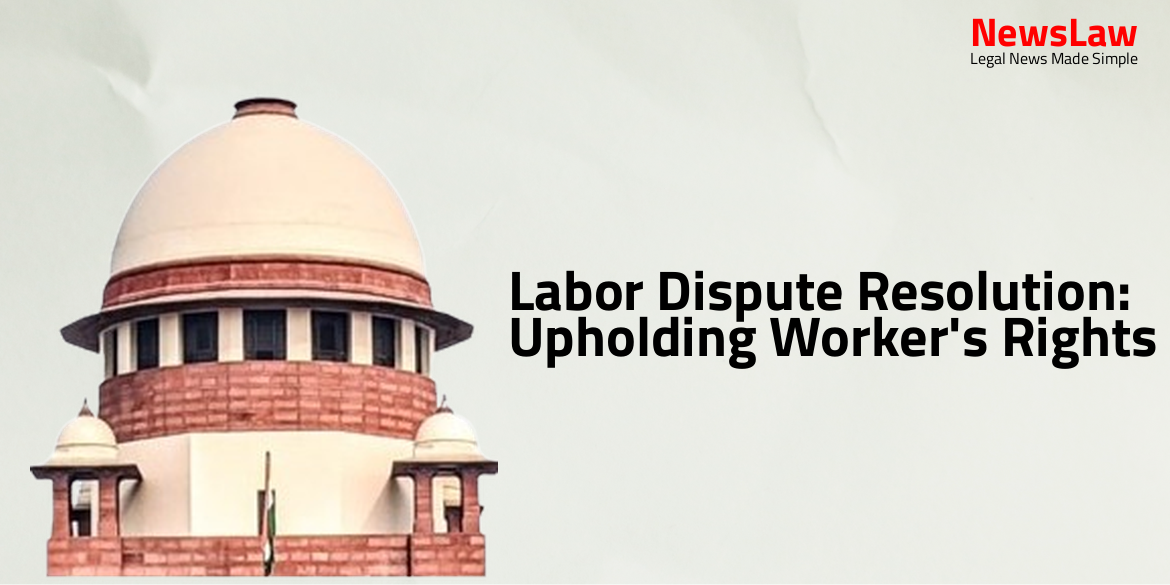Exploring the nuances of justice in marital disputes, this case summary delves into the legal battle between The State and (Respondent No 2). The Delhi High Court’s ruling upholds the importance of scrutinizing allegations in cases involving matrimonial discord. Stay tuned to understand how justice prevails in the face of complex legal proceedings.
Facts
- The petitioner has been married since 1998, almost 20 years before the alleged incident of 19.10.2018.
- The allegation against the petitioner is vague, stating that they abetted or instigated the complainant’s husband without specifying how.
- The allegation arose from FIR No.301/2018 at Police Station Gandhi Nagar, under multiple sections of the IPC.
Arguments
- The petitioner has been residing separately from the complainant since their marriage.
- The petitioner has been summoned based on a wrong presumption of him beating the complainant on the date of the alleged incident.
- There is no corroborative material found by the police during their investigation to proceed against the petitioner.
- The petitioner argues that even if the police file a Closure Report, the Trial Court has the authority to consider the evidence on record and summon the accused.
- The petitioner cites the judgment of the Supreme Court in Zunaid v. State of U.P. & Ors. 2023 SCC OnLine SC 1082 and the judgment of the Court in Bimal Bharthwal v. State through CBI, Neutral Citation No.2012:DHC:2193 in support of his arguments.
- The complainant alleges that the petitioner abetted her husband in beating her up.
- Learned counsel for Respondent No 2 and State supported High Court’s decision under Section 482 of Cr. P.C.
- Allegations of cognizable offence should be left for trial court to decide on truthfulness.
- Category 7 of Bhajan Lal case allows consideration of maliciously instituted proceedings with ulterior motives.
- Category 7 should be applied liberally in cases like the present one.
Analysis
- In Achin Gupta v. State of Haryana & Anr., the Supreme Court held that when an accused invokes the inherent powers under Section 482 of Cr.P.C. to quash criminal proceedings claiming they are frivolous or vexatious, the Court must carefully examine the FIR.
- The Court has a duty to scrutinize the FIR more closely in such cases to determine if the proceedings are indeed frivolous or malicious in nature.
- In Mahmood Ali v. State of U.P., it was emphasized that the Court needs to read between the lines of the FIR/complaint to assess if the alleged offense is made out.
- The judgment authored by J.B. Pardiwala, J. further delves into the legal principles applicable under Section 482 of the CrPC.
- High Court must carefully analyze FIRs filed under Section 498A or Article 226 to ensure they are not frivolous or vexatious.
- Allegations must be scrutinized beyond the FIR/complaint to understand the full context of the case.
- Misuse of police machinery by wives to harass husbands should be avoided; police involvement should be a last resort.
- Section 498A of IPC should not be applied mechanically in cases of marital disputes.
- Court should consider the oblique motives of the complainant and take a pragmatic view of the case.
- Importance of weighing each quarrel in matrimonial cases to determine cruelty, considering physical, mental conditions, character, and social status of parties.
- Not all annoyance or quarrels amount to cruelty in marriage; technical and hyper-sensitive approaches can harm the marriage institution.
- Foundation of a successful marriage includes tolerance, adjustment, and mutual respect.
- Matrimonial disputes harm the children the most, highlighting the need for tolerance in marriage.
- Importance of considering evidence and history of the marriage before making accusations in matrimonial disputes.
- Material before the Trial Court was insufficient to proceed against the petitioner.
- Legal propositions presented by complainant’s counsel are not applicable to the current case.
- Supreme Court’s principles of law cannot support the complainant in this instance.
- Application of Supreme Court’s principles to the facts of the case cannot be justified.
Decision
- The petition is allowed
- The pending application is disposed of as it is now infructuous
Case Title: BABITA JAIN Vs. STATE (GNCT OF DELHI) (2024:DHC:4004)
Case Number: CRL.M.C.-4693/2022



